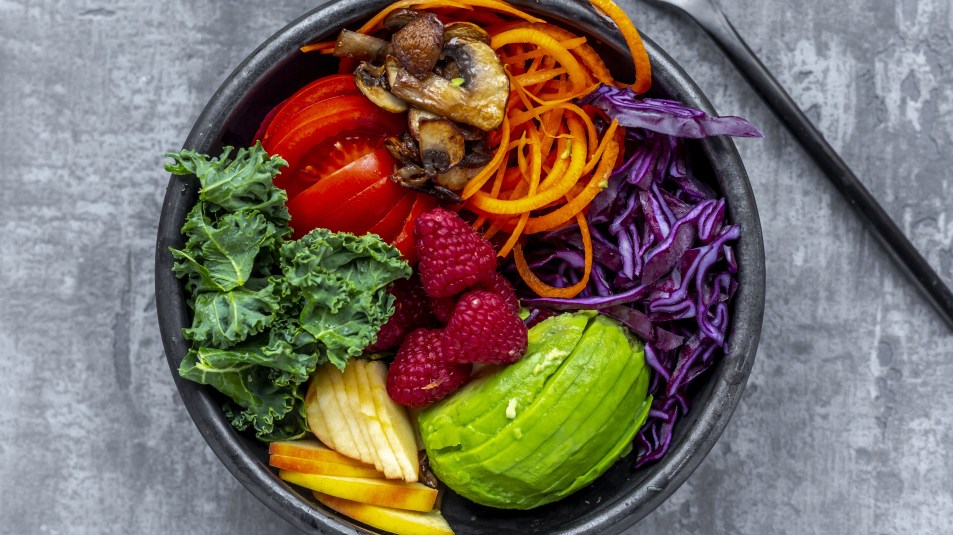What to Eat to Keep Your Memory, According to an Expert

What we put into our bodies matters, especially when it comes to maintaining our brain health. We want to keep our brains and our memory functioning for as long as possible, so it’s important that we eat the right foods. But with so much information out there, what’s really the best diet for avoiding memory loss?
In a recent study, researchers from Australia assessed 139,096 subjects over the age of 45 by having them complete surveys about their eating habits at the beginning of the study between 2006 and 2009, and during a follow-up between 2012 and 2015.
The results showed that people who reported consuming the most fruits and vegetables had a significantly lower risk of memory loss and heart disease later in life. Consuming high amounts of protein-rich foods was also associated with better memory.
We know that fruits and vegetables are a part of any healthy diet, but we spoke to Jonathan Clinthorne, PhD, a Nutrition Communication Manager over at SimplyProtein to find out just how certain foods impact the aging brain.
Clinthorne says he’s not surprised about these results. “One thing that we see in study after study is that fruit and vegetable intake is good for the brain,” he said. “When we consume fruits and vegetables, we not only get vitamins and minerals, but we also get phytonutrients and polyphenols which have shown to have protective effects on the brain.”
And he’s right. Studies have demonstrated that eating fruits like berries and vegetables like leafy greens have been associated with improved brain function over time. Clinthorne also said, “things like resveratrol (an antioxidant found in grapes) help protect the brain from oxidative damage. Your brain can easily be damaged by reactive oxygen byproducts, so it’s important to have antioxidants in the diet like polyphenols and vitamin C.” In other words, antioxidants and other plant compounds in fruit and vegetables protect the brain from harmful free radical damage!
As for the best diet for brain health, Clinthorne says the Mediterranean diet comes pretty close. “Other data shows that the Mediterranean diet is quite protective for brain and mental health,” he says. “When you look at what’s in the Mediterranean diet, there’s fish and seafood, unprocessed whole grains, and between six and ten servings of fruits and vegetables per day.” Unfortunately, this is far more than we typically consume. He admitted, “The average American intake of fruits and vegetables is about one and a half servings, so we need to do better if we want to protect our brains.”
Another surprising finding from the research was that those who ate the least cereal had the lowest incidence of memory issues. But why? Clinthorne says it’s because refined carbs may harm the brain. “Cereals are often [made from] refined carbs, and refined carbs get metabolized as sugar,” he says. “Alzheimers is even sometimes described as ‘type 3 diabetes’ because of the brain’s hypometabolism [or its ability to metabolize sugar]. As we get older, our brains aren’t able to metabolize sugar very well anymore.” So, this research suggests that you might want to steer clear of the cereal aisle.
Unsurprisingly, eating a diet rich in fruits and vegetables has proven yet again to be helpful for the aging process. If you want to keep your brain healthy and your heart functioning, try adding in a variety of fruits and vegetables in your diet. Make it fun by challenging yourself to eat all the colors of the rainbow! Need some inspiration for going more plant-based? Check out this 10-day starter guide.
















